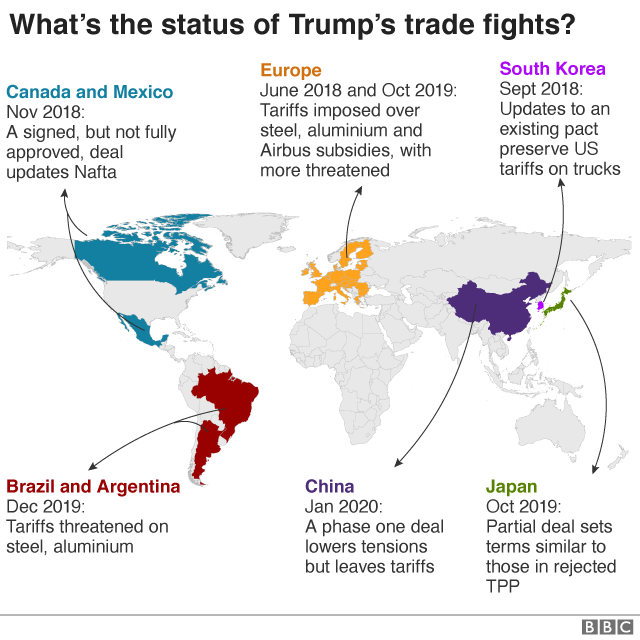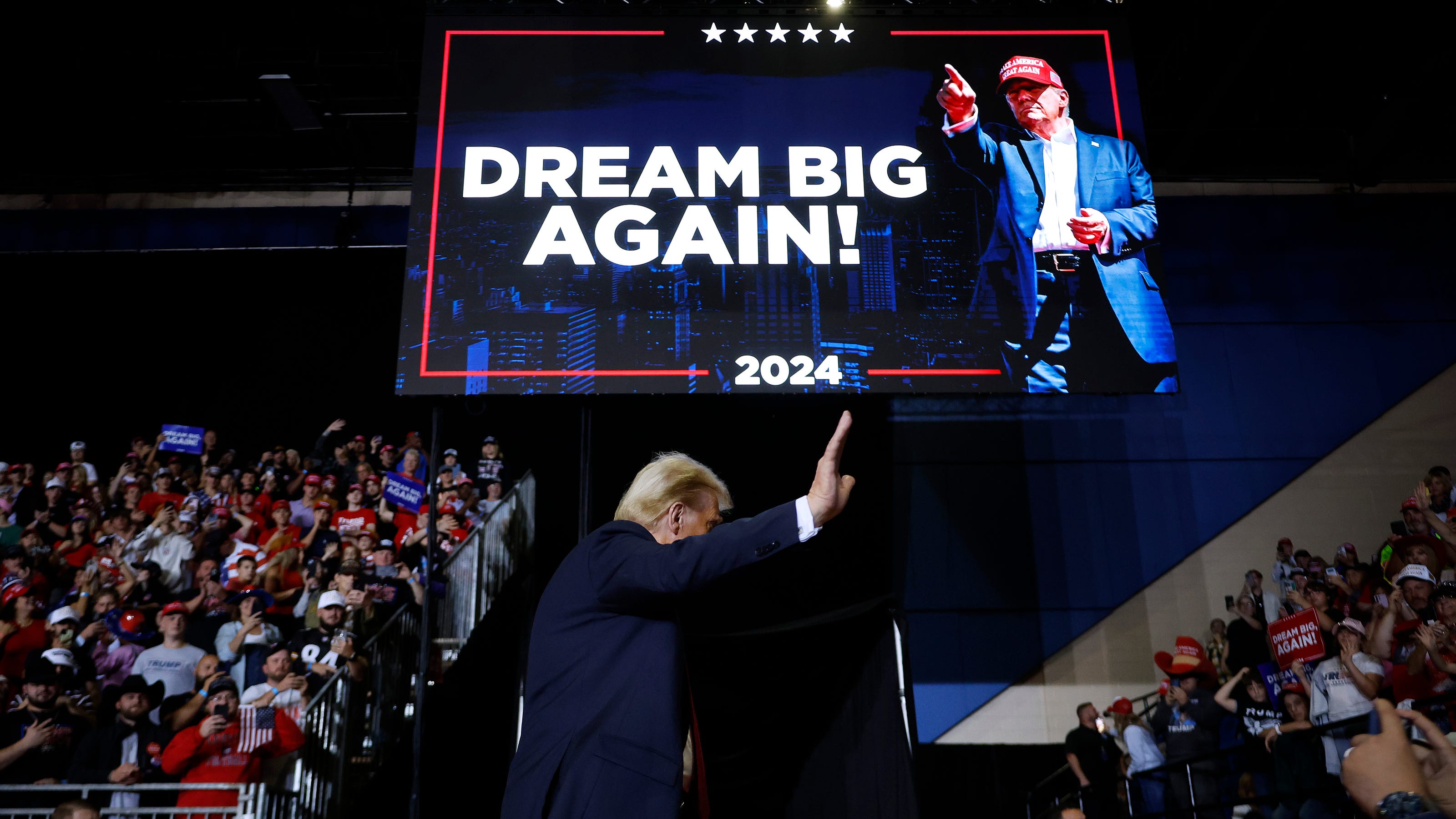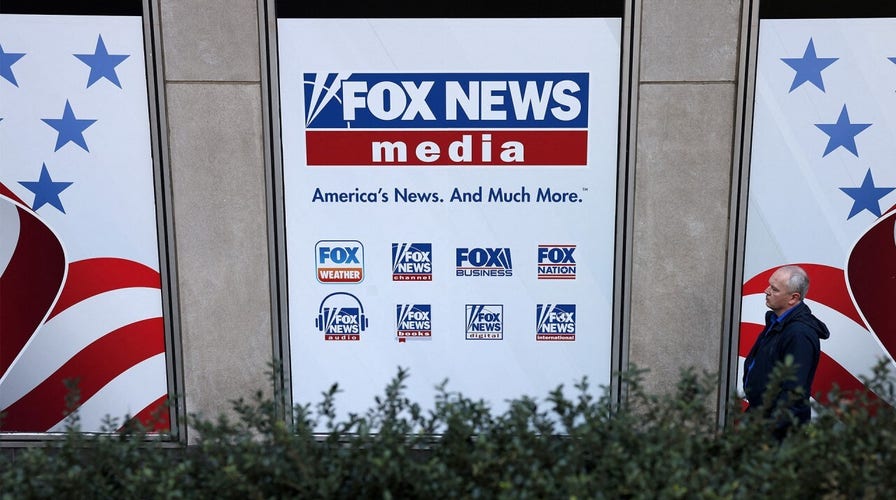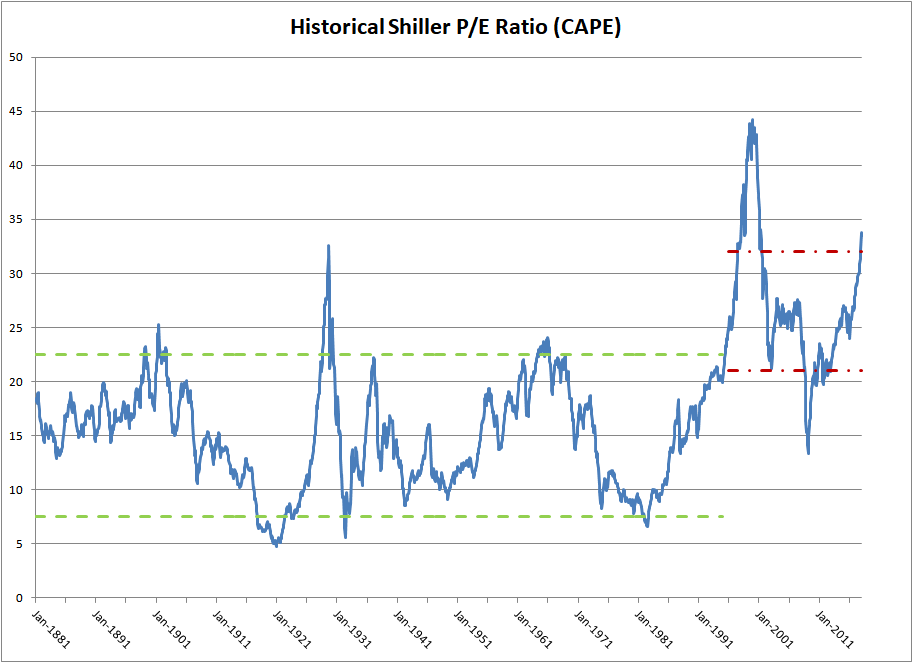Trump's Trade Wars: A Threat To US Financial Leadership

Table of Contents
Increased Uncertainty and Volatility in Global Markets
Trump's unpredictable tariff announcements created significant uncertainty, leading to market volatility and decreased investor confidence. This volatility directly stemmed from the administration's protectionist policies and the resulting retaliatory measures from other nations.
Impact on Investor Confidence:
- Sudden tariff increases on imported goods disrupted supply chains and increased production costs. Businesses faced higher input costs, impacting profitability and investment decisions. The unpredictability made accurate forecasting impossible, hindering investment planning.
- The resulting uncertainty made long-term investment planning difficult and risky, hindering economic growth. Investors, uncertain about future trade policies, became hesitant to commit to long-term projects, slowing down overall economic expansion. This uncertainty affected both domestic and foreign investment in the US.
- Global stock markets experienced significant fluctuations in response to trade war escalations. Every new tariff announcement or retaliatory measure sent shockwaves through global financial markets, causing significant daily price swings and increasing overall market risk.
Damage to International Trade Relationships:
The trade wars significantly strained relationships with key trading partners, damaging long-standing alliances and weakening the international trading system. The unilateral nature of many of these actions alienated allies and fostered resentment.
- Retaliatory tariffs from other countries impacted US businesses and consumers. Countries targeted by US tariffs responded with their own tariffs, creating a cycle of escalating trade tensions and harming both US exporters and consumers who faced higher prices on imported goods.
- Damage to trust undermined the credibility of the US as a reliable trading partner. The unpredictable and often aggressive tactics employed during the trade wars damaged the reputation of the US as a stable and reliable trading partner, affecting future negotiations and partnerships.
- Negotiations became more difficult and less productive due to the lack of trust. The breakdown in trust made reaching mutually beneficial trade agreements exceedingly challenging, further exacerbating the negative impacts of the trade wars.
Negative Impact on US Economic Growth and Employment
The trade wars had a significant negative impact on US economic growth and employment. The increased costs associated with tariffs and supply chain disruptions hampered economic activity and cost jobs.
Increased Prices for Consumers:
Tariffs on imported goods directly led to higher prices for consumers, reducing their purchasing power and impacting overall economic growth. This inflationary pressure reduced consumer spending and affected overall economic well-being.
- Increased costs for businesses led to reduced consumer spending. To offset higher input costs, businesses often passed these expenses onto consumers in the form of higher prices, leading to a decrease in consumer spending.
- Inflationary pressures negatively affected the overall economy. The higher prices for goods and services contributed to inflationary pressures, eroding consumer purchasing power and slowing economic growth.
- The impact was disproportionately felt by low-income households. Low-income households, which spend a larger portion of their income on essential goods, were disproportionately affected by the price increases caused by the tariffs.
Disruption of Supply Chains and Manufacturing:
The trade wars severely disrupted established supply chains, leading to production delays and higher costs for businesses, and negatively impacting manufacturing sectors. Companies faced significant challenges adjusting to the new trade environment.
- Companies faced challenges finding alternative sources of supply. Disruptions to established supply chains forced businesses to search for new suppliers, often at higher costs and with longer lead times.
- Job losses and factory closures resulted from the trade disputes. Businesses struggling to adapt to the changed trade landscape were forced to make difficult choices, including job cuts and even factory closures.
- Businesses struggled to adapt to the rapidly changing trade landscape. The frequent changes in tariffs and trade policies created a volatile and unpredictable environment, making it challenging for businesses to plan for the future and adapt to the new reality.
Erosion of US Global Financial Leadership
Trump's unilateral approach to trade significantly undermined the role of multilateral institutions like the World Trade Organization (WTO), weakening global cooperation and governance. This approach challenged the established rules-based international trading system and had far-reaching implications.
Weakened International Institutions:
- The US's actions challenged the rules-based international trading system. The disregard for established international norms and agreements weakened the overall authority and effectiveness of global trade governance.
- Other countries began to question the commitment of the US to international agreements. The inconsistent and unpredictable behavior of the US administration eroded trust and confidence in its commitment to international cooperation.
- This weakened the overall effectiveness of global trade governance. The weakening of international institutions made resolving trade disputes more difficult and increased the likelihood of future trade conflicts.
Rise of Alternative Global Trade Alliances:
The trade wars encouraged other countries to seek alternative trade partnerships, reducing the influence and dominance of the US in global trade. This shift towards regional agreements challenged the US’s traditional position in the global economic order.
- Regional trade agreements gained traction as alternatives to US-led initiatives. Countries looked to regional trade agreements as a way to bypass the uncertainties associated with the US trade policies.
- This signified a decline in US global economic leadership. The shift in global trade alliances indicated a weakening of the US's position as the dominant player in the global economic landscape.
- The shift towards regional blocs challenged the US’s position in the global economic order. The emergence of these alternative trade alliances signaled a potential long-term shift in global economic power away from US dominance.
Conclusion
Trump's trade wars represented a significant gamble with potentially devastating consequences for US financial leadership. The increased market uncertainty, negative impact on economic growth and employment, and erosion of US influence in global trade institutions all contributed to a weakening of the US financial system’s dominant position. Understanding the long-term repercussions of these policies is crucial for developing effective strategies to mitigate future risks and re-establish the US as a reliable and trusted partner in the global financial landscape. To learn more about the ongoing effects of these policies and their implications for future trade relations, continue researching the lasting impact of Trump's trade wars and the implications for future US trade policy.

Featured Posts
-
 Who Will Bear The Cost Of Trumps Economic Policies
Apr 22, 2025
Who Will Bear The Cost Of Trumps Economic Policies
Apr 22, 2025 -
 The Importance Of Middle Management Benefits For Companies And Employees
Apr 22, 2025
The Importance Of Middle Management Benefits For Companies And Employees
Apr 22, 2025 -
 Trump Supporter Ray Epps Defamation Lawsuit Against Fox News Details On The January 6th Allegations
Apr 22, 2025
Trump Supporter Ray Epps Defamation Lawsuit Against Fox News Details On The January 6th Allegations
Apr 22, 2025 -
 Increased Access To Birth Control Examining The Post Roe Otc Landscape
Apr 22, 2025
Increased Access To Birth Control Examining The Post Roe Otc Landscape
Apr 22, 2025 -
 Why Investors Shouldnt Fear High Stock Market Valuations Bof As Perspective
Apr 22, 2025
Why Investors Shouldnt Fear High Stock Market Valuations Bof As Perspective
Apr 22, 2025
